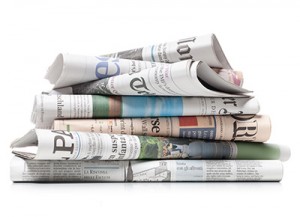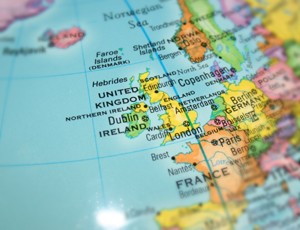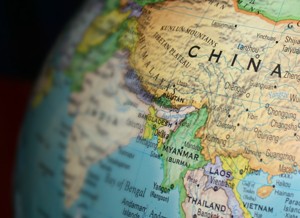Introduction
We try to produce a balanced, rational market commentary at the end of every month. The politicians do their best to turn it into a soap opera. Ah well, here we go…
When we left you last month the UK had just voted for Brexit. David Cameron had announced his decision to resign and a contest for the leadership of the Conservative Party – and the keys to 10 Downing Street – was under way. In the event it was a coronation not a contest, with Theresa May becoming Prime Minister on July 11th. She quickly reshuffled her cabinet, with George Osborne – so long a star of this commentary – sacked as Chancellor and replaced by Philip Hammond (apparently nicknamed ‘Spreadsheet Phil’ by his colleagues).
Theresa May has declared – more than once – that ‘Brexit means Brexit’ and duly appointed long-time Eurosceptic David Davies to head the negotiations. With the European Commission appointing Frenchman Michel Barnier (supposedly not a huge fan of the UK) the negotiations promise to be long and difficult – and they’ll only officially begin when Article 50 is triggered.
The politicians were also taking centre stage across the pond, and Donald Trump and Hillary Clinton accepted the respective Presidential nominations of the Republican and Democratic parties. The campaign – through to November 8th – promises to be bitter and divisive.
What of the rest of the world? Surely, away from the politicians, it was all sweetness and light? Not in Italy, which is due to face twenty years of economic hardship according to the International Monetary Fund. Nor for the American trade deficit, which once again went in the wrong direction – especially America’s trade with China. There was good news on US jobs but that other, centuries-old barometer of American prosperity – iPhone sales – was down for the second successive quarter. Good news in China though, where the economy grew more than had been expected in the second quarter of the year.
…And there was one unequivocally good piece of news in July: every stock market we cover in this commentary – yes, even Greece – went up in the month.
UK
In the last commentary, we reported that the UK stock market had more than made up the ground it lost in the immediate aftermath of Brexit. That trend continued in July – as illustrated below – and the month contained the usual mixture of good and bad economic news. Depending on which newspaper you read ‘Britain [was] in business with a Brexit bounce’ (the Telegraph) or the ‘UK economy begins to feel Brexit tremors’ (the Guardian, on the same day).
There were contradictory reports from supposedly more dispassionate observers as well, with the IMF stating that ‘Brexit will throw a spanner in the works of global growth.’ Their forecast for global growth was cut from 3.2% to 3.1% whilst the 2016 forecast for UK growth was reduced from 1.9% to 1.7%. More ominously, the IMF slashed its 2017 forecast for the UK from 2.2% to 1.3%.
…But the Bank of England reported that there was no evidence of economic activity slowing since Brexit. Neither did there seem to be a shortage of confidence among the public, as the Council of Mortgage Lenders reported that lending in June was the highest for eight years.
Not much more than a month after the vote the more rational and considered view must be that it is far too early to tell what effect the Referendum vote has had.
There were many predictions that the Brexit vote would see an immediate cut in interest rates: in the event, the Bank of England’s Monetary Policy Committee (MPC) voted to keep rates on hold initially, but then voted to cut rates to 0.25% in early August. This is the first UK interest rate change since March 2009 and the governor of the Bank of England, Mark Carney said that the majority of the MPC backed another cut if data reflected that the economy was deteriorating.
Another bank that made cuts was Lloyds, as it announced plans to axe 3,000 jobs and close 200 branches, despite announcing a doubling of profits for the six months to June 2016 – up to £2.5bn from £1.2bn in the same period last year. However, both Amazon and McDonald’s announced plans to create jobs in the UK – although you suspect those won’t be in highly skilled positions.
There was a worrying straw in the wind for UK savers, when RBS and NatWest wrote to business customers to say that they may introduce a negative interest rate – in effect, charge businesses to deposit money. For now personal customers are not affected, but who knows what may happen if global interest rates stay as low as they are?
There was nothing low about the FT-SE 100 index of leading shares. Having closed June at 6,504 it continued its post-Brexit rise, finishing July at 6,724 and rising 3% in the month. Having fallen sharply against the dollar in the immediate aftermath of the Referendum, the pound stabilised and spent much of the month hovering in the $1.31 to $1.33 range, finally closing July at a rate of $1.3233 to the pound.
Europe
Regular readers of this commentary will know that growth in the Eurozone has been sluggish for some time now, and the International Monetary Fund was quick to downgrade its forecast for the region in the wake of Britain’s vote to leave the EU. They are now predicting growth of 1.6% this year and 1.4% next, down from 1.7% in both cases. The forecast for 2018 was also revised downwards, with prospects for the bloc described as ‘mediocre’ due to high levels of debt and unemployment. Mahmood Pradham, deputy director of the IMF’s European Department, said the outlook ‘could worsen further’ if negotiations between the UK and the EU were protracted, especially if that caused investors to shy away from riskier assets.
One country where the outlook is decidedly worse than ‘mediocre’ is Italy. The IMF has implied that Italy has ‘two lost decades’ and that the economy will not return to levels seen before the 2008 crash until the mid-2020s, by which time other European economies will be 20-25% bigger than their 2008 levels.
The IMF cautiously forecast growth of just over 1% for the next three years, but with an unemployment rate of 11% and the Italian banks still in crisis, this could easily be wide of the mark. The banks are weighed down by bad debts and could, said the IMF, need a significant injection of funds. With government debt second only to Greece, the outlook is far from good for the Eurozone’s third largest economy.
However, it was business as usual in the largest economy, with Germany reporting a trade surplus of €21bn for May, up 8.2% on the previous year. The unemployment rate in Germany is steady at 4.2%, with inflation at 0.3%.
Unsurprisingly, it was a good month for the German stock market, which was up 7% to close July at 10,337. France was also up despite another series of terrorist attacks, closing the month at 4,440 for a rise of 5%.
US
As we reported above, the US now faces a straight choice between Trump and Clinton in November – and whoever takes office in January 2017 will come face to face with the ever-present US trade deficit. Figures released for May showed the deficit widening to $41bn in May – up from $37bn in April. Imports grew by 1.6% and – with the dollar strengthening – the trade deficit is likely to continue at present levels as imports become relatively cheaper and exports less competitive. The trade gap with China rose by 19% to $29bn – the largest difference since November 2015.
There was, though, good news on the jobs front, with the labour market rebounding strongly in June, as 287,000 jobs were created – way up on the revised figure of just 11,000 for May.
The Federal Reserve Bank responded to all this by keeping US interest rates on hold for another month. The Fed said that ‘near term risks’ to the economy had diminished, but inflation remains below the Bank’s target – as it does in so many of the world’s major economies.
In company news, Verizon agreed to pay $5bn for Yahoo, but it would take rather more to buy Facebook, as the company reported another quarter of exceptional growth, with profits for the period from April to June up 186% to $2bn.
No such good news at Apple’s HQ, where iPhone sales were down for the second consecutive quarter.
Fortunately the Dow Jones index took its cue from Facebook not Apple, breaking through the 18,000 barrier and ending July at 18,432 – up 3% in the month.
Far East
Apple’s loss was clearly Samsung’s gain, as the South Korean company reported its biggest quarterly profit in two years, up to £5.46bn in the second quarter, largely thanks to sales of the Galaxy S7. The company predicts continuing high demand, which can’t have cheered them up at Apple HQ.
There was also positive news from the Chinese economy, with figures for the second quarter showing that the economy had grown by 6.7% as the government increased infrastructure spending. This was ahead of economists’ predictions of 6.6% and in line with the growth target for the year.
Shares in Line – a messaging app popular in Japan – surged 50% when they made their debut on the Tokyo stock market, but the real excitement in company news came with Nintendo, following the release of Pokémon Go. Anyone who’s watched the nation’s teenagers staring at their mobiles while wandering straight into doors can’t be unaware of Pokémon Go and it was initially reflected in Nintendo’s share price – up 50% by the middle of the month. Then the company issued a profit warning, saying that billions of teenagers wandering around looking for Pikachu would have ‘little impact on profits.’ The shares promptly returned whence they’d come, leaving I suspect, thousands of poorer, but wiser, investors.
What of the wider stock markets? All four major Far Eastern markets were up, with China’s Shanghai Composite index rising by 2% to 2,979. The Hong Kong market was up 5% to 21,891 and Japan up 6% to 16,569. The ever-cautious South Korean stock market was up by 2% to 2,016.
Emerging Markets
It’s not a country that we cover on a regular basis, but it is perhaps important to note that Puerto Rico has defaulted on $779m of debt. With debts of $2bn due for full or partial repayment in July, the island had just $200m in its operating account. The US has moved to help, signing a bill that gives the island access to debt restructuring support.
All the three major emerging markets we cover had a good month, with their stock markets moving upwards. Russia was up by 3% to 1,945 and India rose 4% to 28,052. Pride of place, however, went to Brazil – host of the Games of the XXXI Olympiad – where the market was up to 57,308, a rise of 11% in the month. The Brazilian market is now up by 32% for the year as a whole.
And finally…
A tale of two technologies this month. First of all the Japanese company Funai Electric has announced that it will make the world’s last VHS-playing VCR. If you’re under 30, VCR stands for video cassette recorder and is a reminder of the days when the family could only watch a film at home by sending Dad to the rental shop in the pouring rain. Apparently, say Funai, “demand has fallen…”
But consolation is at hand – at least in South Korea – where they are to have an ‘internet of things.’ Phone network SK Telecom is behind the initiative, which will allow your fridge to tell you when it needs to be re-filled and – presumably – when it’s chosen a film for you. However, the key question – can your fridge find any new Pokémon for your teenage son – remains frustratingly unanswered. And they dare to call it progress…
If this blog has raised any questions why don't we have a quick chat?

MD & Certified Financial Planner
A brief meeting might be of interest, especially if you’re unsure just how wealth management and financial planning could help you.
It would only require the investment of an hour or so of your time, and the coffee’s not bad either.
